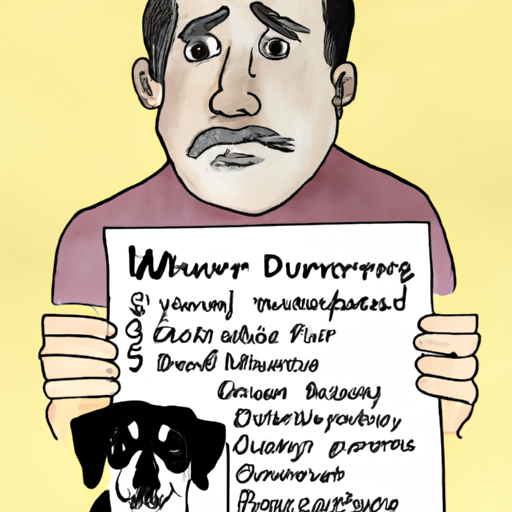As a loving and diligent caregiver, you’re always looking out for the health and well-being of your furry friend. One of the most common health issues among dogs is diarrhea. The following sections delve into the common food items that can lead to diarrhea in dogs.
H2: Dairy Products
Dairy products, while loved by many humans, can cause discomfort and diarrhea in dogs. Dogs typically lack lactase, the enzyme required to break down lactose found in dairy products, which can lead to digestive issues.
Here’s a list of common dairy products that you should avoid giving to your dog:
- Milk
- Cheese
- Ice Cream
H2: Greasy and Fatty Foods
Dogs don’t have the same capacity as humans do to digest fatty and greasy foods. These types of foods can cause pancreatitis, a serious and potentially fatal condition, along with diarrhea.
Examples of greasy and fatty foods to avoid include:
- Bacon
- Fried foods
- Butter
H2: Spicy Foods
Spicy foods can wreak havoc on a dog’s digestive system, leading to diarrhea. Therefore, it’s best to keep your spicy treats away from their reach.
H2: Certain Fruits and Vegetables
While some fruits and vegetables are beneficial for dogs, others can lead to diarrhea or other health issues. For example, grapes and raisins can cause kidney failure in dogs.
Here’s a table of fruits and vegetables to avoid:
| Fruits/Vegetables | Possible Effects |
|---|---|
| Grapes/Raisins | Kidney Failure |
| Onions/Garlic | Hemolytic Anemia |
| Avocado | Diarrhea, Vomiting |
H2: Sweeteners
Artificial sweeteners, particularly xylitol, are highly toxic to dogs and can cause diarrhea, vomiting, and even liver failure.
FAQs
Q: Can I give my dog human food?
A: Some human foods are safe for dogs in moderation, but others can cause serious health issues. Always check with your vet before introducing new foods into your dog’s diet.
Q: My dog ate a small piece of cheese. Will they get diarrhea?
A: Not necessarily. Some dogs can tolerate small amounts of dairy. However, if your dog shows signs of discomfort or diarrhea, it’s best to avoid dairy in the future.
Q: How do I know if my dog has pancreatitis?
A: Symptoms of pancreatitis in dogs include diarrhea, vomiting, and abdominal pain. If you suspect your dog has pancreatitis, seek immediate veterinary care.
Remember, as a caregiver, it’s crucial to monitor what your dog eats. When in doubt, always consult with a veterinarian.



